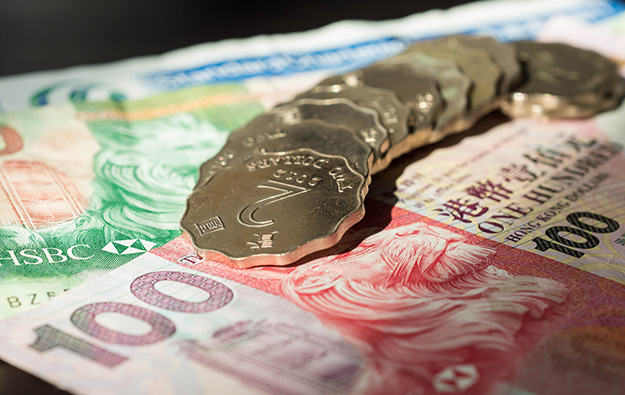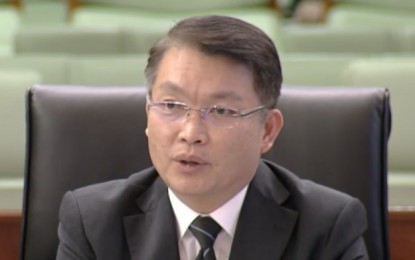Macau tightens casino AML rules, keeps reporting limit
Jun 03, 2016 Newsdesk Latest News, Macau, Top of the deck

Macau’s gaming regulator has extensively revised the anti-money laundering rules for the sector, but has kept the threshold set for casinos to report “large” transactions at MOP500,000 (US$62,500).
The new rules – available in written form only in Chinese and Portuguese, Macau’s two official languages – were enacted on May 13. The Macau casino regulator – the Gaming Inspection and Coordination Bureau, also known by its Portuguese acronym DICJ – did not issue any public announcement on the matter.
The rules – included in DICJ’s Instruction no. 1/2016 – are available on the official website of the body. The new instruction requires casinos and junket operators to engage in more detailed anti-money laundering procedures than were required under the previous protocols.
The previous anti-money laundering instruction by DICJ had been issued in 2006.
“Ongoing revision of laws and regulation[s] to cope with the development of the gaming industry is essential, so the [anti-money laundering] instruction is unexceptional,” a DICJ spokesperson told GGRAsia.
The person added: “In regards to the large sum transaction reporting threshold, the DICJ consider[s] the MOP500,000 as an appropriate amount especially when there are other measures in the AML Instruction no. 1/2016 that would help to mitigate the money laundering risks.”
The DICJ spokesperson did not comment on the potential impact of the new rules on Macau’s gaming sector nor on what were the main changes introduced compared with the 2006 instruction from the regulator’s viewpoint.
The new set of rules more than doubles the number of provisions included in the anti-money laundering instruction. They outline that casino and junket operators should review the money laundering risks involved in their activities at least every two years, and introduce “effective measures” to tackle such risks.
The rules oblige casino and junket operators to “identify and closely monitor transactions” involving “politically exposed persons”, including from mainland China. For that, operators must have in place an “adequate” risk management system that allows them to identify politically exposed persons.
That definition covers government officials, executives of state-owned companies and high officials from political parties; close family members and known business associates are also included under the “politically exposed persons” definition as set in the new instruction.
Whether or not to accept business from a “politically exposed person” is a decision that can only be made by an executive-level member of a casino or junket operator, the new rules state.
Instruction no. 1/2016 in addition expressly forbids casino operators and junkets from conducting business with people using aliases or under anonymity.
The more stringent rules covering politically exposed persons come as authorities in mainland China continue their crackdown on corruption. The clean up on the mainland has been perceived by several gaming industry observers as having had a knock on effect, in particular on the Macau VIP gambling market, as wealthy players seek to avoid attracting the sort of attention that can come from dropping large amounts of cash at the gambling tables.
Casinos, check your junkets
In addition, casino operators are now obliged to verify and sign any “large sum” transaction report submitted by junkets operating in their facilities. The instruction states that any suspicious transaction report submitted by a junket operator should be the “focus of special attention” by the respective casino operator involved.
The new rules allow casino operators and junkets to submit large sum transaction reports using electronic systems.
Additionally, Instruction no. 1/2016 introduces two whole new chapters of rules regarding, respectively, the extension of credit to gamblers and transfer of funds. Among other provisions, the new instruction states a daily record must be kept of all credit operations conducted for gambling purposes, and of the parties involved.
The new rules also extend the responsibilities of compliance officers at casinos or at junket operators, and address the question of their professional expertise. The regulator can now ask compliance officer candidates to undergo a written examination to prove their technical knowledge.
Notwithstanding the announced changes to Macau’s AML rules, the U.S. State Department has repeatedly called for Macau to reduce the large sum transaction reporting threshold of MOP500,000 to the equivalent of US$3,000 “to bring it in line with international standards”.
A Macau casino sector source privately told GGRAsia that lowering the large sum transaction reporting threshold to US$3,000 would be unfeasible in Macau, due to the high volume of bets in the territory involving amounts greater than that. That source stated that, were such a protocol to be introduced, the casino regulator would struggle properly to verify so many reports.
Suspicious transaction reports filed by Macau casinos fell by 9 percent last year, the city’s Financial Intelligence Office said earlier this year.
The city’s gaming sector remained the main source for such transaction reports in 2015, accounting for 1,247 cases, or 69 percent of the total.
The lodging of such reports does not in itself indicate criminal activity has occurred, but does indicate that a transaction has been earmarked for closer scrutiny.
Paulo Martins Chan, a former assistant public prosecutor-general in Macau who became head of the city’s casino regulator last December, mentioned at the time of his official appointment the need for an “improved legal framework” for the industry.
Related articles
-
 Philippines reformed junket AML, site...
Philippines reformed junket AML, site...Oct 28, 2024
-
 Macau 3Q mass baccarat GGR up 12pct on...
Macau 3Q mass baccarat GGR up 12pct on...Oct 16, 2024
More news
-
 Macau to get 36mln visitors in 2025:...
Macau to get 36mln visitors in 2025:...Nov 21, 2024
-
 EBITDA a focus in Macau market share...
EBITDA a focus in Macau market share...Nov 21, 2024
Latest News
Nov 21, 2024
Macau’s 2025 visitor tally could reach 36 million, or a circa 9-percent gain on this year’s projected 33 million. So said Lei Wai Nong (pictured in a file photo), the city’s Secretary for...Sign up to our FREE Newsletter
 (Click here for more)
(Click here for more)
Pick of the Day
”[Baccarat side bets in Macau] are becoming more popular amongst players, based on what we observed when we conducted our [monthly premium mass] table surveys”
George Choi and Timothy Chau
Analysts at Citigroup
Most Popular
 Gaming technology firm IGT reports hacking incident November 21, 2024
Gaming technology firm IGT reports hacking incident November 21, 2024  US$30bln 2025 GGR target achievable for Macau: CE November 19, 2024
US$30bln 2025 GGR target achievable for Macau: CE November 19, 2024  Marina Bay Sands projects 40pct EBITDA leap post extension November 20, 2024
Marina Bay Sands projects 40pct EBITDA leap post extension November 20, 2024  Macau big-event outdoor venue gets trial run Dec 28: CE November 20, 2024
Macau big-event outdoor venue gets trial run Dec 28: CE November 20, 2024  Future of gaming is the online format: Pagcor chairman November 20, 2024
Future of gaming is the online format: Pagcor chairman November 20, 2024









